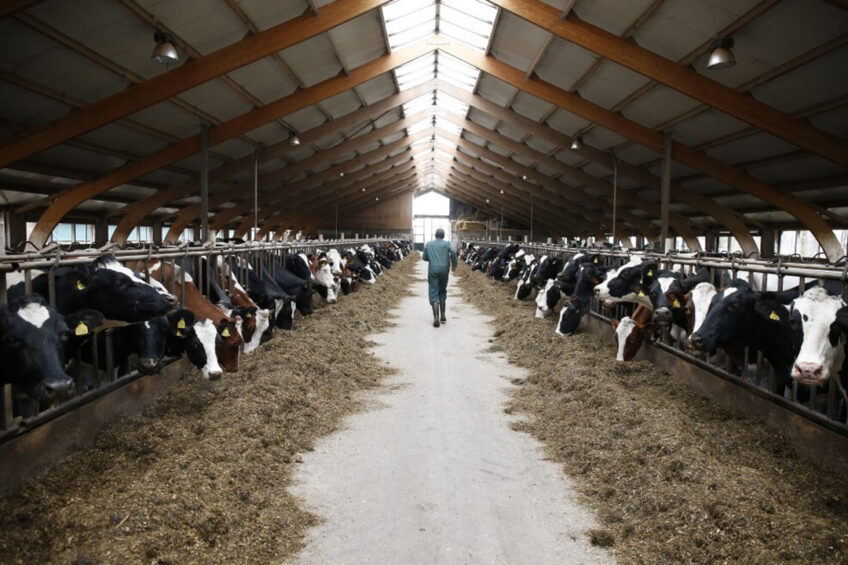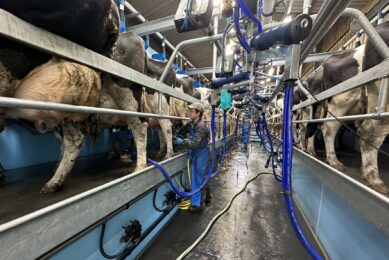Australian dairy farmers unable to find labour

In Australia, 1 in 4 dairy farmers are unable to find labour or access the skills they need on farm, according to a survey by Dairy Australia.
“Some 22% of dairy farmers were also unable to fill vacant positions within 3 months with 40% losing at least 1 or more workers,” general manager, regional services, Verity Ingham of Dairy Australia says.
Benefits of working in dairy
The Australian national body for the dairy industry says the problem is compounded by Covid-19 and the nationwide skills shortage across a range of sectors beyond agriculture. To help tackle the problem, Dairy Australia is launching a new national marketing campaign to promote the benefits of working in dairy farming and encouraging Australians to explore a job in dairy.
The campaign will featuring dairy ambassador Jonathan Brown and 7 dairy farmers. It will focus on why working in dairy matters and will highlight factors that have shown to motivate people to consider a job in dairy.
“These factors include working with animals, working outdoors, career progression, job variety and training, job security and the contribution Australian dairy makes to the community through production of a highly nutritious food,” Dairy Australia points out.
The workforce attraction campaign will be delivered into dairying regions across TV, YouTube, radio, social media and local newspapers and encourage jobseekers to find job opportunities in the dairy industry in their region. Farmers will be encouraged to take advantage of an increased interest in jobs on dairy farms and tap into information on attracting new workers.
Retaining great people in dairy
Ingham says the aim of the campaign is to bring people into the industry and keep them: “Competition for jobseekers in regional areas is fierce, so finding good, reliable people is a priority for dairy farmers. Keeping them is just as important.”
She emphasises that dairy farm workers are needed to keep the milk flowing. “And for the cheese on tables, and the yoghurt in our lunchboxes. We really are looking for people who want job security, who like working with and caring for animals; people who are looking for variety, flexibility in their work life or wanting career progression.”
The lack of staff has led some farmers to decide to milk fewer cows…
“For dairy farmers, there are also employment resources and information on retaining great people available,” Ingham says. “I encourage farmers to take advantage of this opportunity.”
Many dairy farmers in Australia are offering increased wages, incentives and performance bonuses to retain and attract staff. But some farmers can’t find any applicants. The lack of staff has led some farmers to decide to milk fewer cows. Others have switched to beef as a less labour-intensive option. Robotic dairies have also become more popular in Australia.
“A real handbrake on corporate dairies”
President of Australian Dairy Farmers, Rick Gladigau, recently said that the coronavirus era had not been kind to large-scale milking operations, because of labour-shortages. “It is a real handbrake on corporate dairies. Not just the corporates but mid-size operations, too. There comes a certain point, depending on the number of cows, the age of the farmer, and other factors, when you need to hire an extra person or 2 or 3.”
Australia’s treasurer, Jim Chalmers, earlier announced he is in discussions with business about a temporary increase to the nation’s skilled migration intake, as the sector lobbies for 200,000 visas to be offered to address labour shortages.
In the dairy industry in New Zealand, there are similar problems. Farmers in New Zealand had to work longer hours, and some jobs, such as pasture management, were being missed. The sector relies partly on overseas workers, but it takes a long time to recruit foreign workers, secure visas and for workers to move.
Dairy farmer and Federated Farmers spokesman, Richard McIntyre, said recently his industry had been short staffed for a year. “The real difficulty is if I attract someone to my farm, there are only so many people and I’m really just taking a staffer off someone else, and that creates a problem for them. There’s just this fundamental shortage of people.”
Join 13,000+ subscribers
Subscribe to our newsletter to stay updated about all the need-to-know content in the dairy sector, two times a week.










